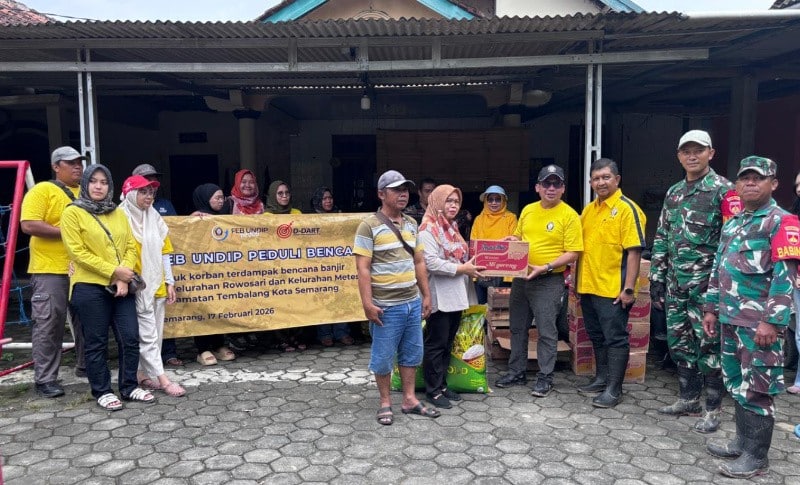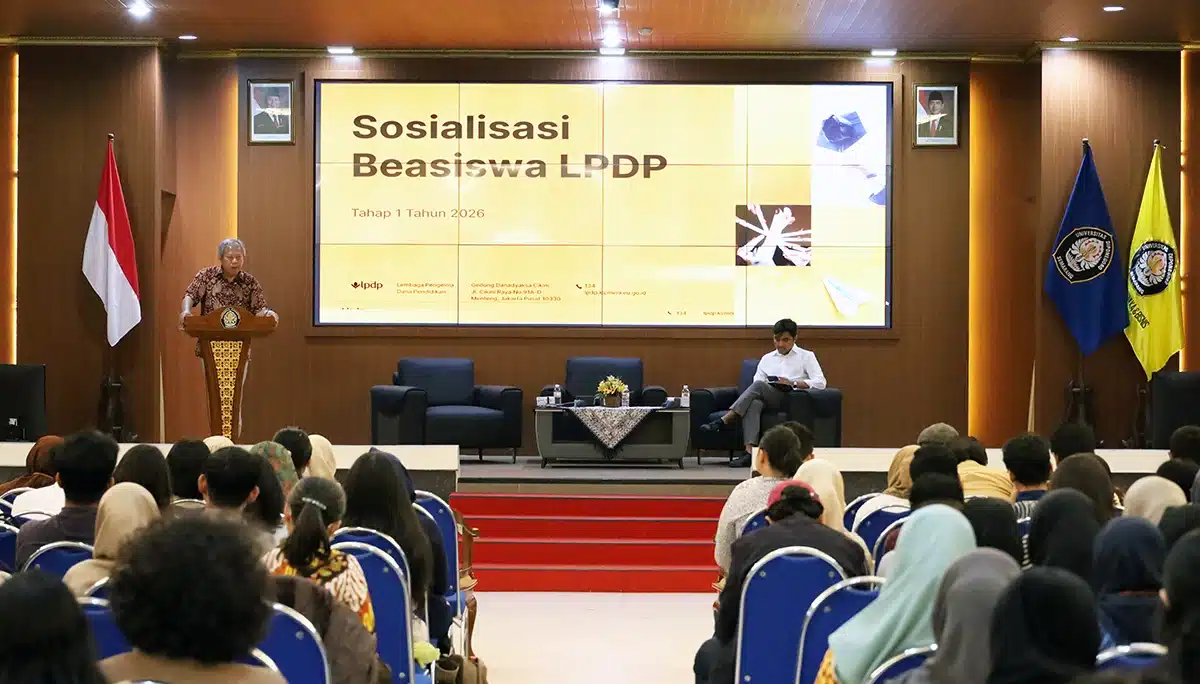The Industrial Chemical Engineering Technology Study Program (TRKI) at the Vocational School, Diponegoro University (Undip), had initiated the concept of OB TVET learning (Principles, Infrastructure, and Superstructure) to prepare Perform graduates who meet the needs of the millennial industry. The developed vocational learning system focuses on Modified Outcome Based Education (OBE), incorporating a Dual System and a Digitalized Teaching Factory to embrace Cybergogy learning. Cybergogy involves active engagement through Web 4.0, communication, collaboration in the cyber realm, self-regulation, ownership, generativity, inspiration, and meaningful humanity.
The Head of the Study Program, Mohamad Endy Yulianto, stated that TRKI graduates are mostly absorbed into the industry. At the same time, some pursue further education to a master’s or doctoral degree or venture into entrepreneurship. Those pursuing master’s and doctoral education are often abroad, such as in the UK, Japan, Korea, Thailand, and Taiwan. Qurrotun A’yuni Khoirun Nisa’ is undertaking an integrated master-doctoral degree in polymer engineering at Pukyong National University, South Korea, and Yusuf Arya is pursuing a Ph.D. at Chulalongkorn University, Thailand.
When contacted via Zoom, Ayuni attributed her achievements to valuable guidance from dedicated professors and moral support from fellow students. She emphasized that the experiences and lessons received have shaped her academics and character, making her ready to tackle future challenges.
Ayuni also expressed her gratitude for being able to study at Undip’s Vocational Industrial Chemical Engineering Technology Study Program. The TRKI learning system, which implements a Dual System integrated with the Teaching Factory, was one of the pillars so that further study for Masters and Doctoral degrees can be accepted. It was conveyed that practical replication learning at the mini-plant and practical replication through lecturers’ research provided more than enough skills and competencies to study abroad. “Through this experience, I hope to make a greater contribution to research and innovation at the global level. Of course, none of this would have been achieved without the help of lecturers, staff, friends, and the university, who have supported me throughout this journey,” said Ayuni.
Arya shared a similar sentiment. He stated that equipped with research capabilities, mastery of laboratory and pilot-plant equipment, and scientific article publications, he had the opportunity to pursue a master’s degree abroad starting in 2022 with a full scholarship, namely the Excellent Foreign Student (EFS) scholarship from Sirindhorn International Institute of Technology (SIIT), Thammasat University, Thailand.
“During my master’s studies, I was involved in a more intensive academic environment, where expectations for research and scholarly work had higher standards. Various courses, research projects, and participation in discussions substantially expanded my knowledge. This reminded me of the crucial role of engineering and technology in the context of sustainability during my studies at TRKI Undip,” said Arya.
Arya also added that in the research process, he engaged in more complex experiments, analyzed and visualized deeper data, and faced more intricate methodological problems. Moreover, the intensive academic atmosphere at the TRKI Program encouraged him to continue innovating and being creative.
The learning methods in the TRKI Program replicate practices and apply independent learning, such as research and community service activities by faculty and staff. TEFA-based course learning occurred directly in TEFA, and students replicated practices in mini-plants to improve their skills. Arya concluded that “These pillars led him to pursue a doctoral degree in the Faculty of Engineering, Chulalongkorn University, Thailand, with a C2F PhD scholarship (Funding for high-efficiency Ph.D. candidates under the Second Century Fund).”









